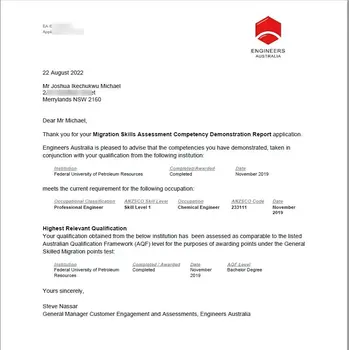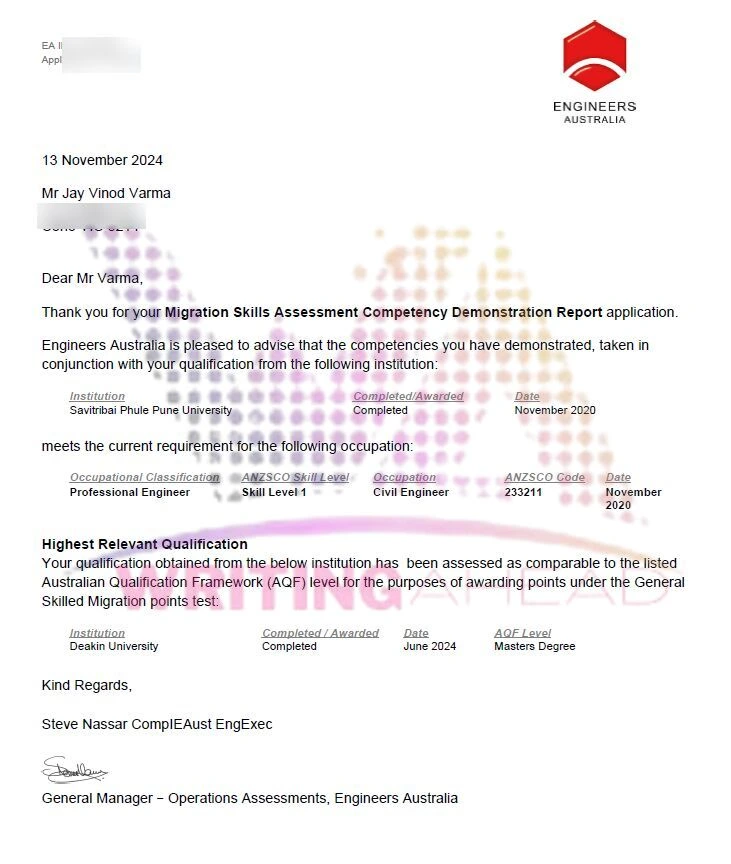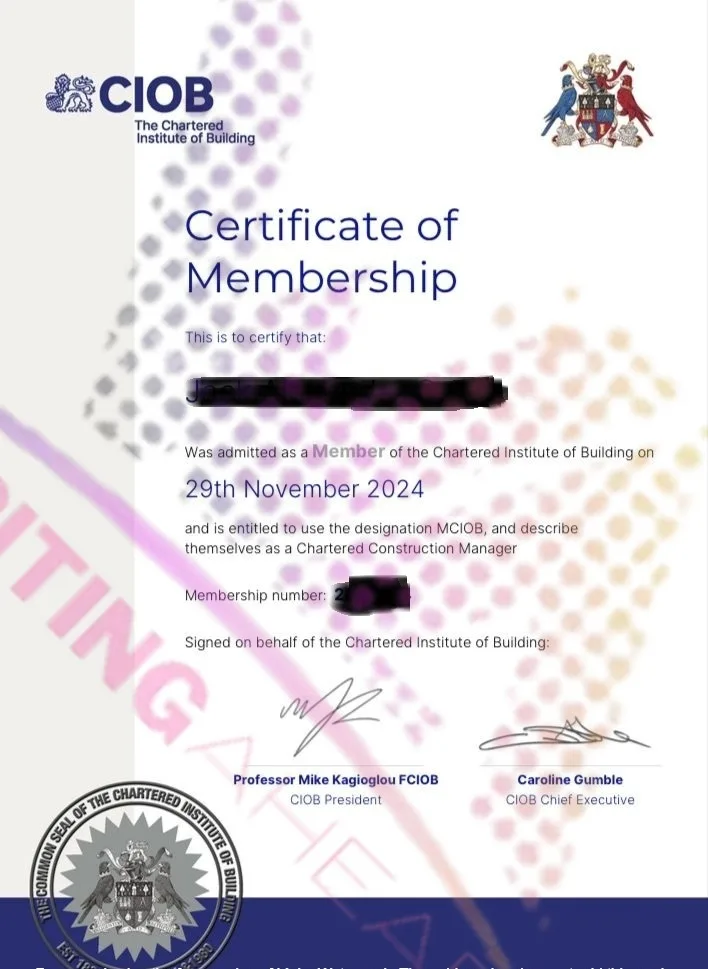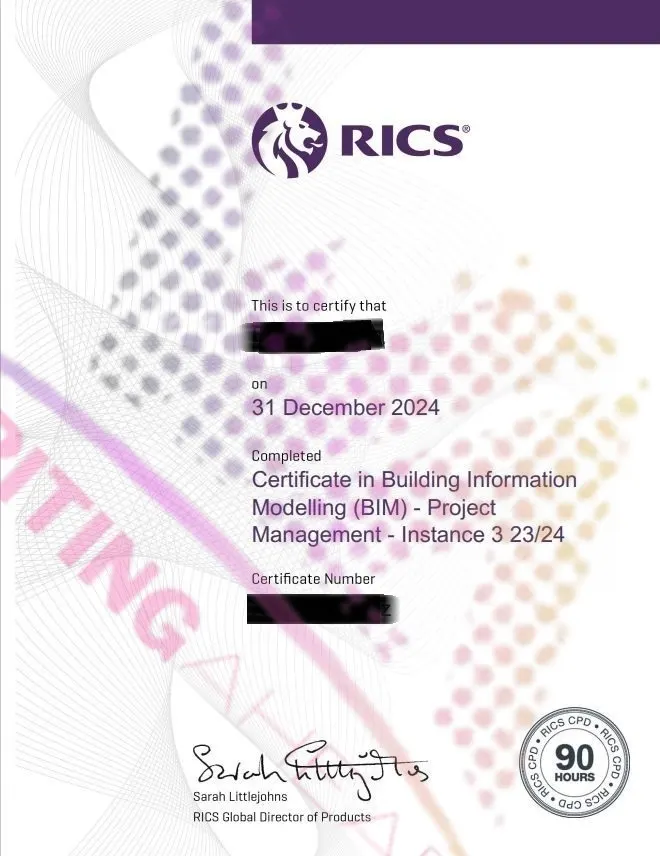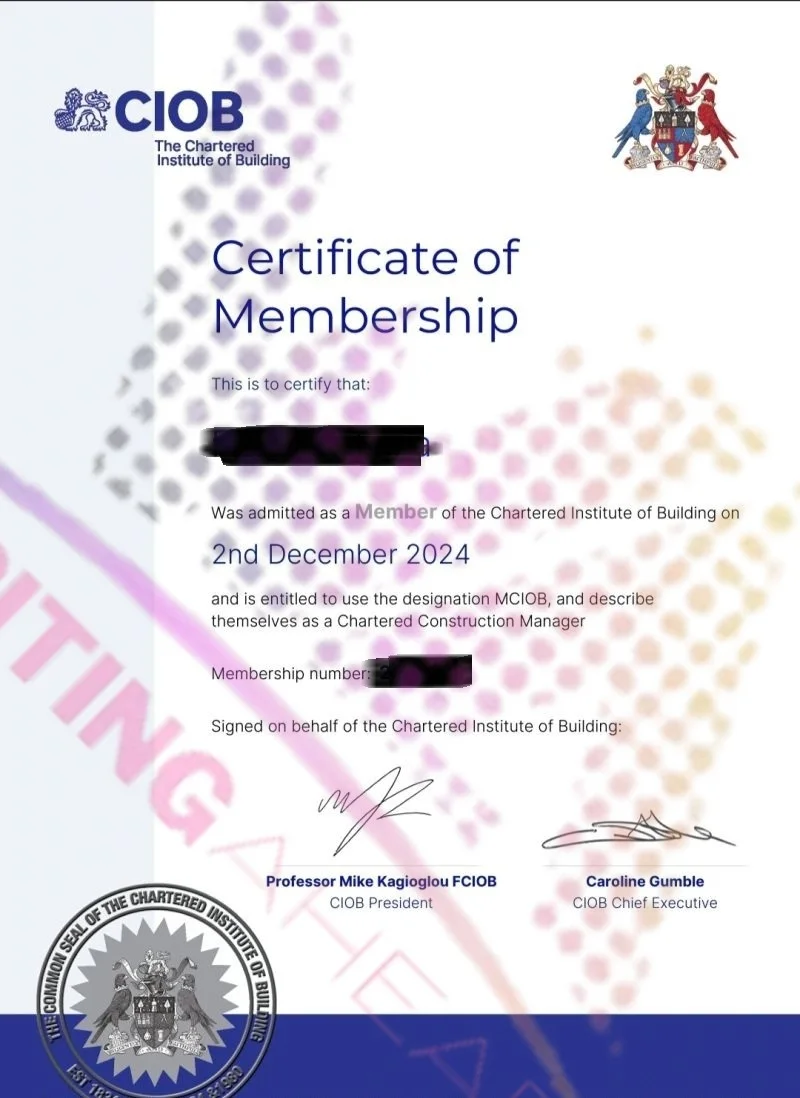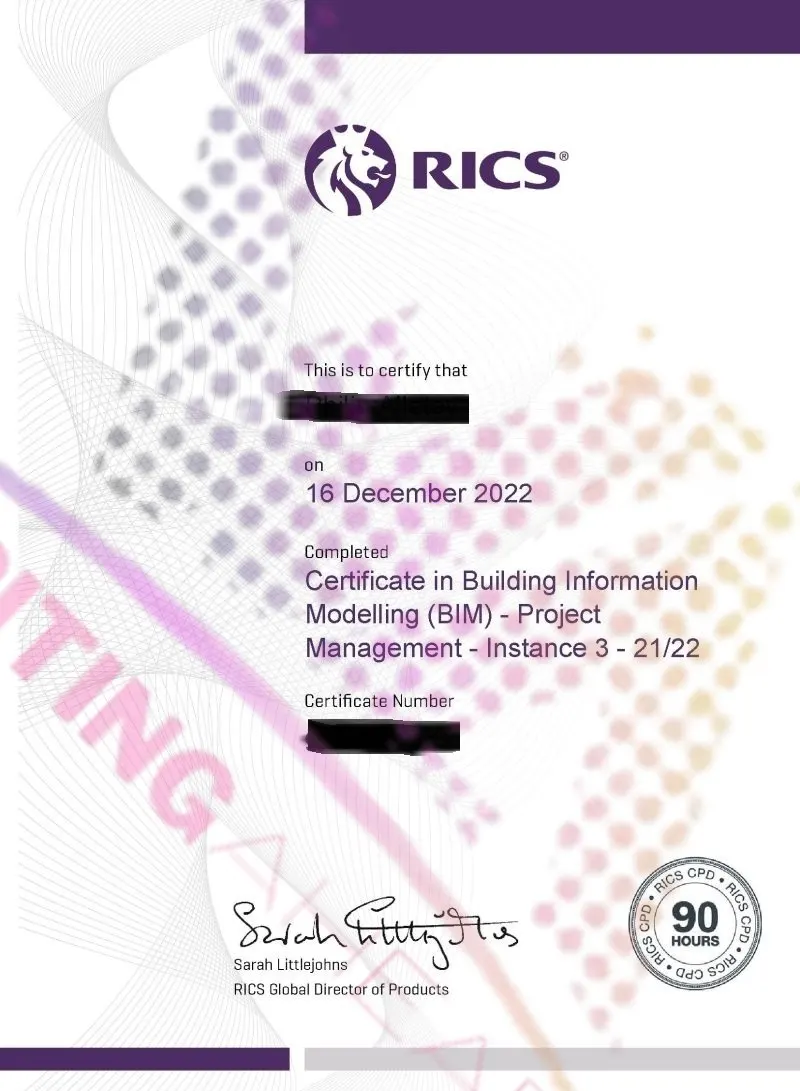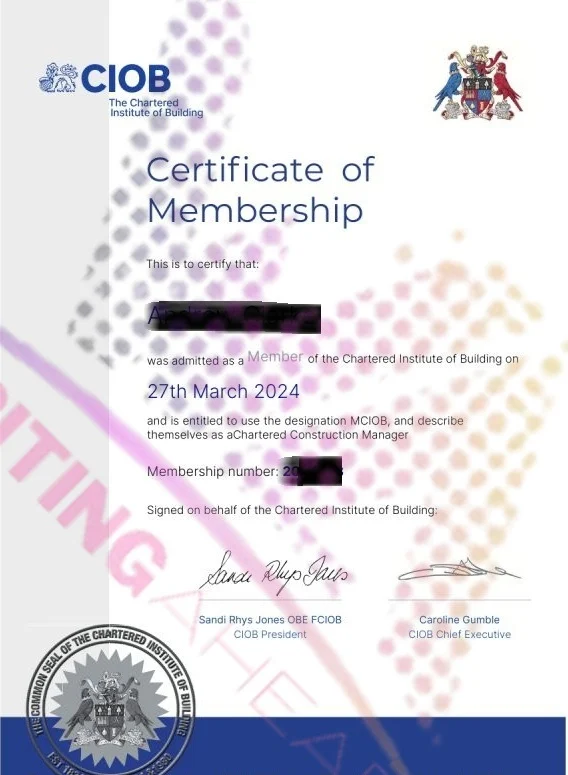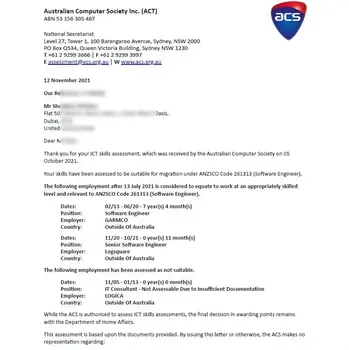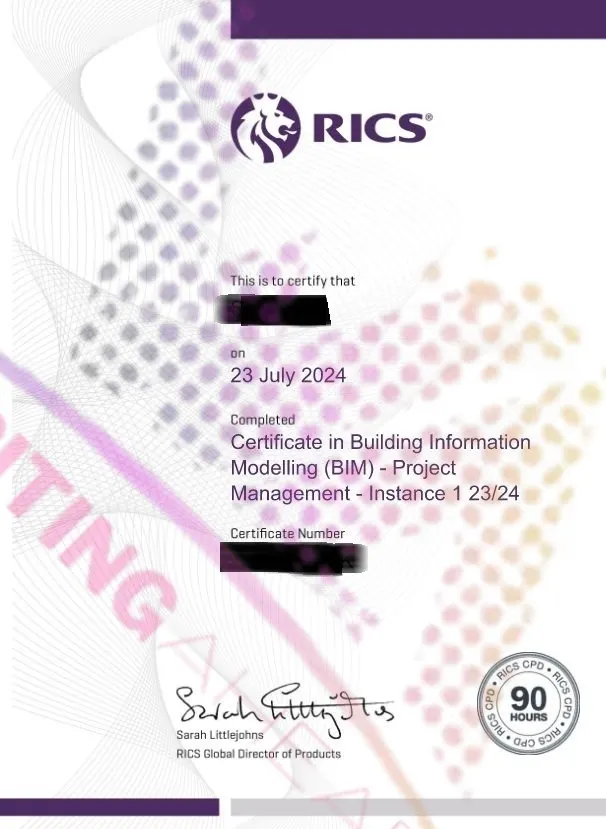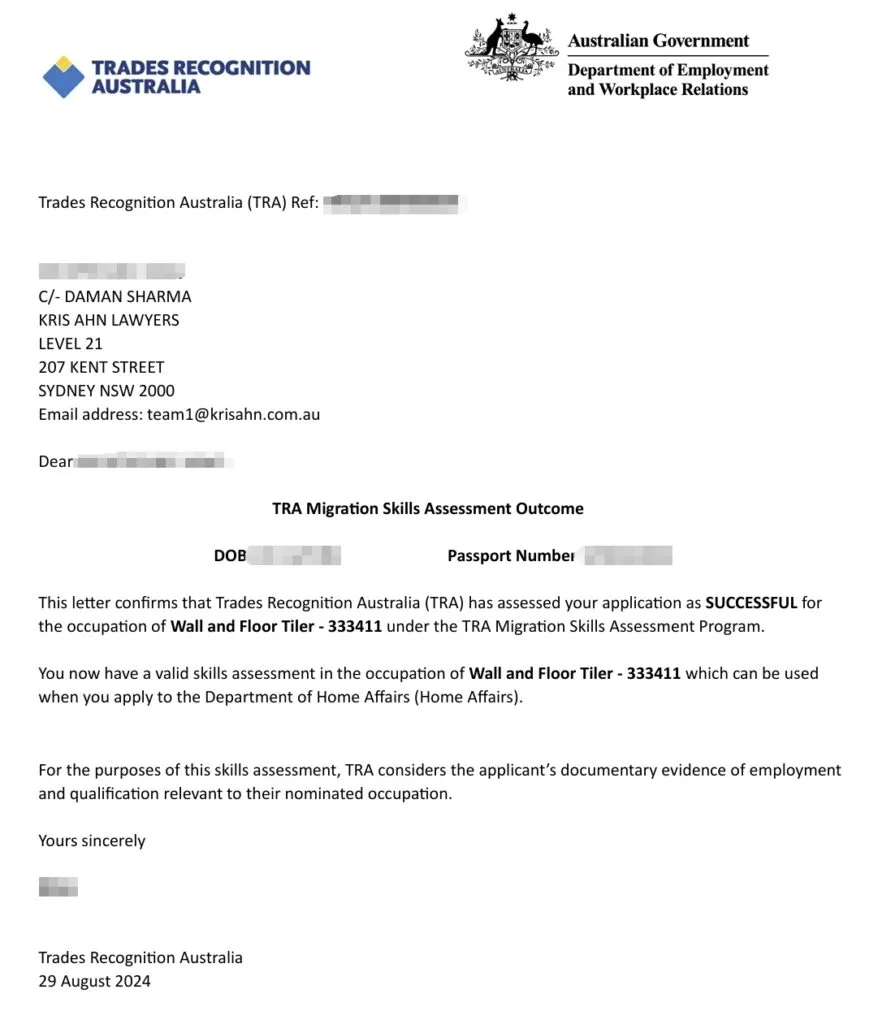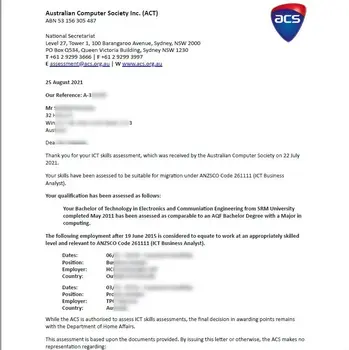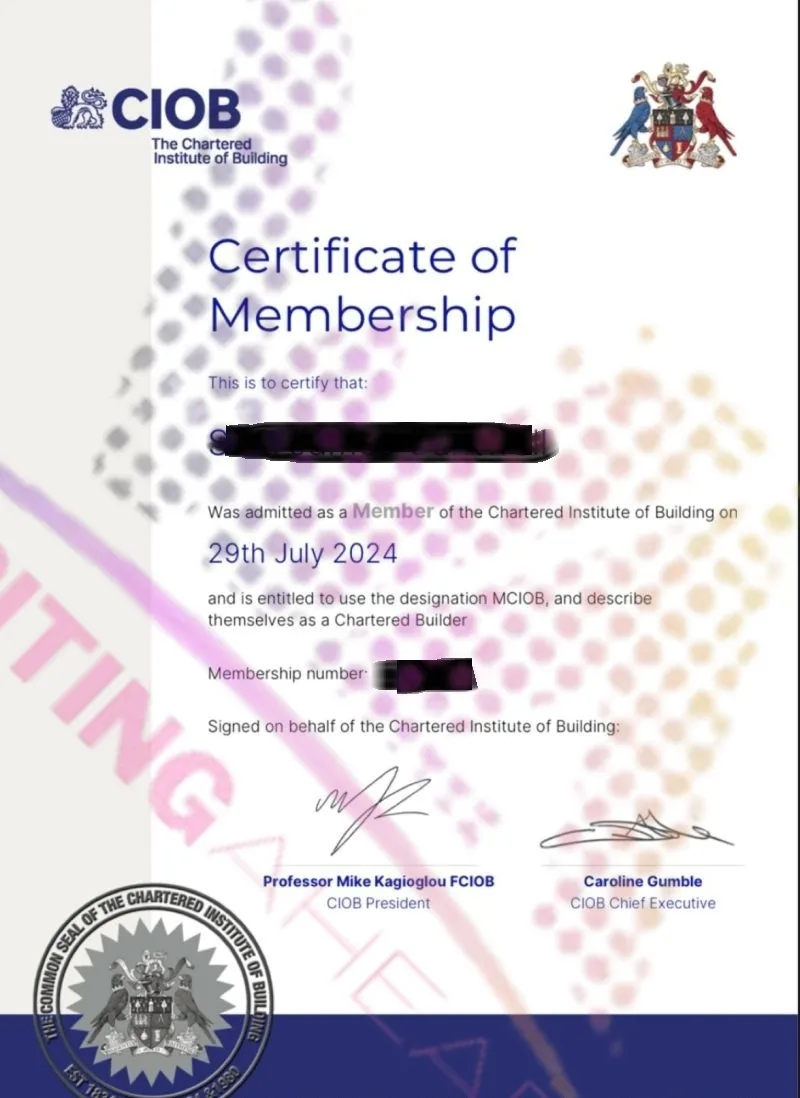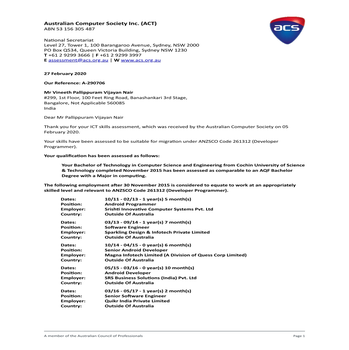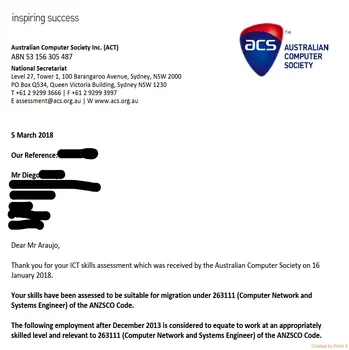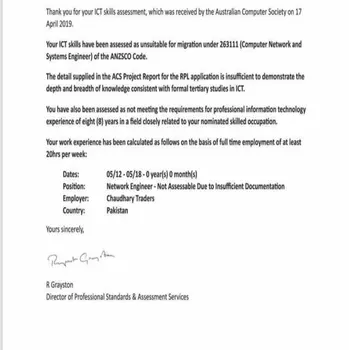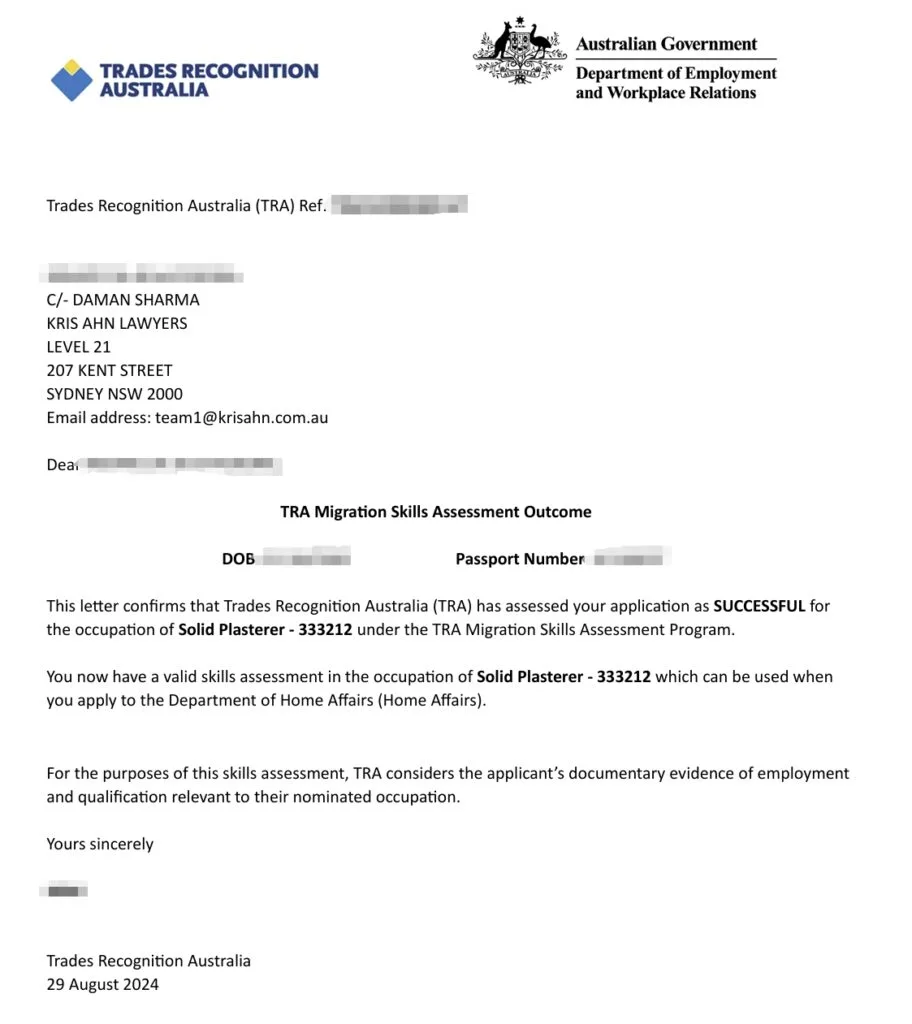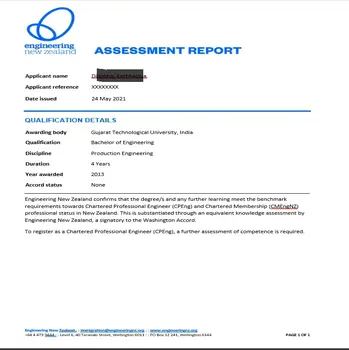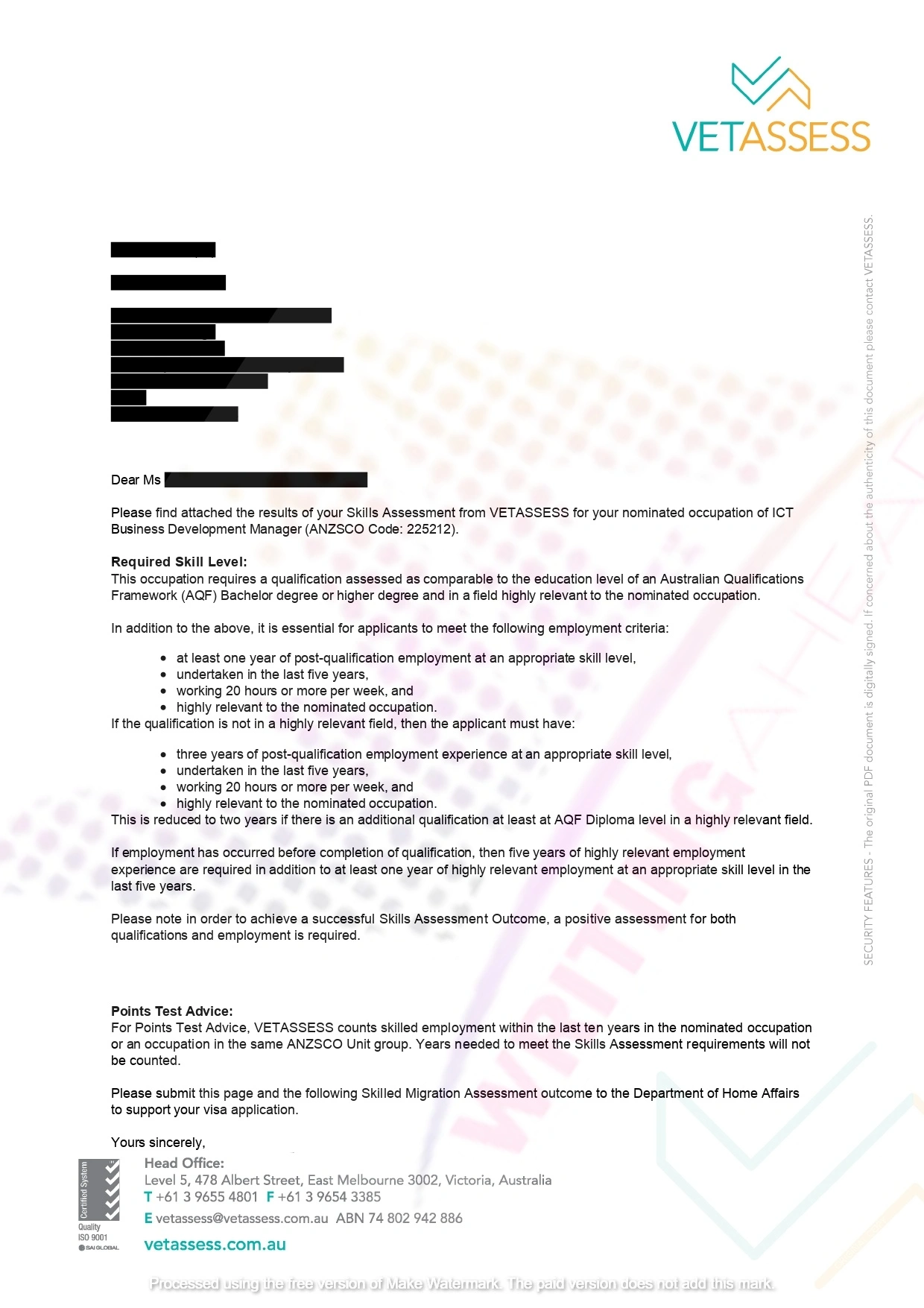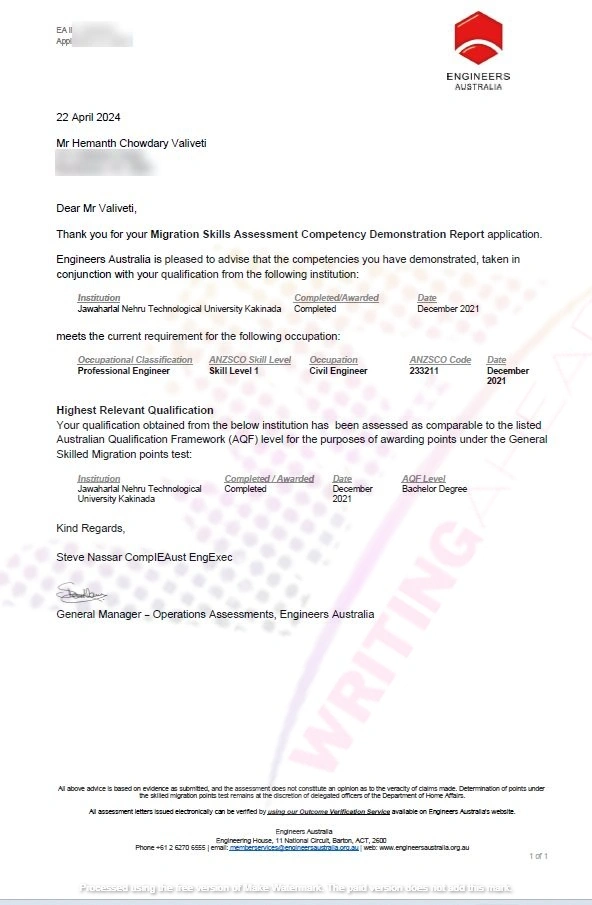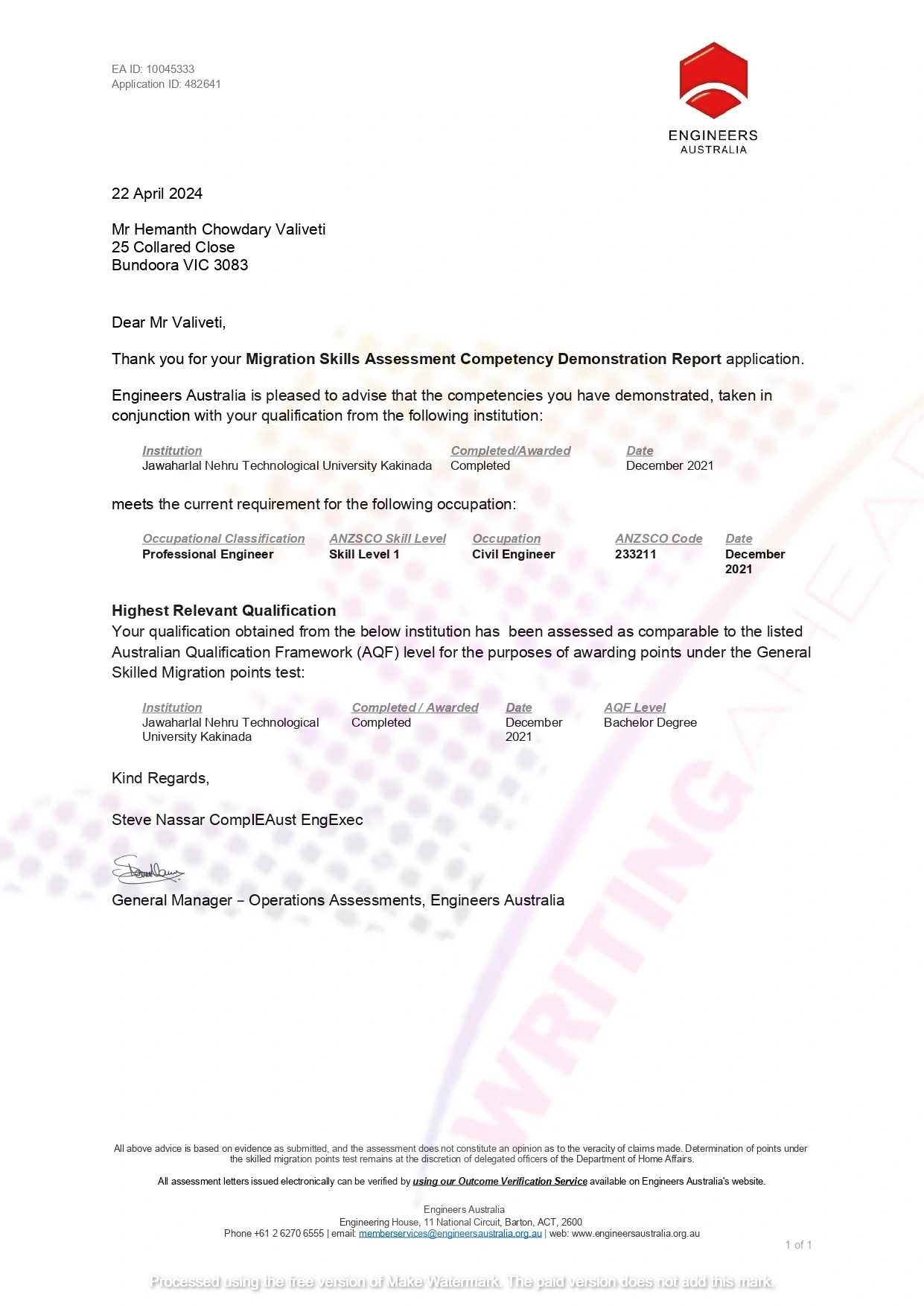Skills Assessment Help Services for Migration
🏅 4.9/5 Rating
Certified Experts
💯 Privacy
Premium Quality
🏅 4.9/5 Rating
Certified Experts
💯 Privacy
Premium Quality
Basicaly skills assessment refers back to the process of evaluating the qualifications, skills and work experience of people looking for to work or migrate to Australia. Skills Assessment evaluation is carried out by way of identified assessing government, ensuring that your professional credentials meet Australian requirements and play a important role in Visa Applications and Employment opportunities.
For many skilled employees seeking to relocate and work in another country, a talents assessment is an essential a part of the migration technique. Skill Assessment certifies that applicant’s qualifications and work experience meet the specific requirements required in the destination. There are a extensive variety of resources available to help with the assessment of migration competencies, which can be especially useful for the ones focused on the greater rigorous employment requirements in Australia, NZ, Canada and United Kindom.
Writing Ahead is designed to help applicants reach navigating the disturbing needs of various specialist migration programs. We additionally offer education in preparing and submitting your assessment, demonstrating qualifying classes and on occasion imparting sensible interviews or exams.
Different contexts require skills assessments for different individuals, with a particular focus on ensuring that individuals have the necessary knowledge and skills to perform specific roles or tasks.
There are special groups and situations where skills assessments are often needed
| Purpose | Benefit | |
|---|---|---|
| Skilled Migrants | For individuals looking to immigrate and work abroad, especially in sectors such as engineering, IT, nursing and teaching. Countries such as Australia, Canada and the UK require skills assessments to ensure potential migrants’ qualifications and work experience meet local standards. | Ensures that immigrants are eligible to work in their chosen profession in another country, making it easier to effectively touch the local labor market. |
| Professional Licensing and Certification | Professionals in regulated fields such as healthcare, law, and accounting generally require competency assessments to obtain licenses or certifications to practice in a particular field. | Maintains expert requirements and public safety by means of ensuring that only certified individuals are allowed to provide certain services. |
| Job Applicants | Employers often require skills assessments as a part of the hiring method, mainly for specialized technology or positions, to ensure applicants have the abilities essential for job. | Helps employers make knowledgeable hiring selections and will increase the chances of career success. |
| Educational Institutions | Students or graduates may need to demonstrate their skills as part of course requirements or for further placement in educational programs. | The benefits make certain that scholars meet the required instructional standards and are organized for educational and professional improvement. |
| Professional Development | To permit individuals looking for profession advancement or transitioning to a new position to undertake a capabilities assessment to decide strengths and areas for improvement. | The benefit provides a means for career development through targeted training and education. |
| International Professionals | Employees moving internationally or working for international companies should undergo a skills assessment to align their qualifications with global or local standards. | Facilitates mobility and compliance with international labor standards, increasing employment opportunities. |
During skills assessment, individuals frequently make common mistakes which could affect the evaluation outcome.
Here are some mistakes to avoid:
| Mistake: | Impact: | |
|---|---|---|
| Incomplete Documentation: | Submitting incomplete or inaccurate documentation. | Incomplete information may lead to delays or rejection of the skills assessment. |
| Misalignment with Occupation Code: | Choosing an incorrect or mismatched occupation code. | The chosen occupation code must align with the individual's qualifications and work experience for a successful assessment. |
| Non-compliance with Guidelines: | Ignoring or not fully complying with the guidelines provided by the assessing authority. | Failure to adhere to guidelines may result in an unsuccessful assessment. |
| Misinterpretation of Requirements: | Misinterpreting the specific requirements of the assessing authority. | Misunderstandings can lead to the submission of irrelevant or inaccurate information. |
| Inaccurate Employment References: | Providing inaccurate or incomplete employment references. | Employment references should accurately reflect the individual's roles, responsibilities, and skills. |
| Lack of Evidence for Qualifications: | Failing to provide sufficient evidence for academic qualifications. | Clear and authenticated evidence is crucial for verifying academic qualifications. |
| Insufficient Documentation for Work Experience: | Not providing detailed documentation for work experience. | Lack of detailed information may affect the assessment of relevant work experience. |
| Not Addressing English Language Proficiency: | Neglecting to address English language proficiency requirements if applicable. | English language proficiency is often a key criterion for assessment; not addressing it can lead to issues. |
| Ignoring Continuous Professional Development (CPD): | Neglecting to showcase ongoing professional development through CPD. | CPD is often a requirement, and its absence may impact the assessment. |
| Failure to Provide Clear Career Episodes: | Submitting unclear or poorly written Career Episodes. | Clear and well-structured Career Episodes are crucial for showcasing competencies. |
| Late Submission: | Submitting the application after the deadline. | Late submissions may result in delays or even rejection. |
| Not Seeking Professional Advice: | Failing to seek advice from migration agents or professionals. | Professional guidance can help avoid mistakes and enhance the chances of a successful assessment. |
| Overlooking Changes in Requirements: | Overlooking updates or changes in the requirements of the assessing authority. | Failure to adapt to changes may lead to non-compliance. |
To ensure a smooth skills assessment process, individuals should thoroughly understand the guidelines, provide accurate and complete documentation, and seek professional advice when needed.
Migration skills assessment pointers vary relying on country and Assessing Authority liable for evaluating an individual's qualifications and skills. Below are general guidelines for migration skills assessment, however it is crucial to refer to the precise suggestions provided by applicable assessing authority inside the destination country:
It's important to notice that guidelines may change, so candidates have to up-to-date information provided through the assessing authority for accurate and relevant guidance.
Migration Skill assessment required depends on the country and the specific trade or profession for which the person is seeking the check. Different countries and assessment authorities have their own methods and criteria for assessing competence. At WritingAhead, we provide an in depth breakdown of the tasks usually concerned in migration skills assessments.
| Purpose | Process | Countries | |
|---|---|---|---|
| General Skill Migration Assessment | Individuals who applying for skilled migration visas. | Typically involves assessing educational qualifications, work experience and English language proficiency. | Australia, Canada, New Zealand and United Kingdom. |
| Professional Membership Assessment | For individuals who seek to recognition from a professional association or body. | Involves evaluating qualifications, work experience, and adherence to professional standards. | Various, depending on the profession. |
| Occupational Skills Assessment | For specific occupations or trades. | Evaluates skills and qualifications relevant to the nominated occupation. | Various, depending on the occupation. |
| Qualification Recognition Assessment | Assessing the equivalence of foreign qualifications in the destination country. | Determines if academic qualifications obtained overseas are comparable to local standards. | Various, depending on the destination country. |
| English Language Proficiency Assessment | To assess individual's who proficiency in the English language. | Involves taking standardized tests such as IELTS or TOEFL. | Various, depending on visa or professional requirements. |
| Trade Skills Assessment | For individuals in skilled trades seeking recognition. | Evaluates practical skills and qualifications relevant to the trade. | Australia, Canada, etc. |
| Academic Credential Assessment | Evaluating foreign academic credentials for educational or professional purposes. | Determines the equivalence and recognition of foreign academic qualifications. | Canada, USA, etc. |
| RPL Assessment | Assessing skills gained through work experience and informal learning. | Recognizes and validates skills acquired outside formal education. | Various, depending on the context. |
| Employability Skills Assessment | Assessing an individual employability skills for job placement. | Evaluates a range of skills including communication, teamwork, and problem-solving. | May be used in employment services globally. |
| VET Assessment | Assessing skills acquired through vocational training. | Recognizes qualifications and skills obtained through vocational education. | Various, depending on vocational education systems. |
This migration skills assessment plays an important role for businesses in guiding applicants through the complex requirements of immigration for professional jobs. By usage of skills assessment services, applicants can substantially increase their probabilities of effectively proving your qualifications and abilities in country you are applying to.
Skills assessments for migration are accomplished by using distinct authorities specific to each profession or trade. For example, Engineers Australia assesses engineers, the Australian Computer Society evaluates IT professionals and our bodies like VETASSESS or Trades Recognition Australia cope with exchange-related assessments. These authorities make sure your qualifications and experience meet specified requirements for migration.
EA Skill Assessment is a technique conducted by Engineers Australia to assess engineer qualifications, work experience and talents. This evaluation, often regarding the overview of documents just like the Competency Demonstration Report, ensures that engineers meet Australian requirements for professional practice whether or not for migration or registration purposes.
Bacially positive Skills Assessment is critical step for migration process, as it validates applicant possesses to essential qualifications and skills for their nominated occupation. It is mostly a prerequisite for applying for skilled migration visas.
For 482 visa, a formal skills assessment is normally now not required if your nominated career is on the authorized professional occupation listing and you are sponsored by an employer. However, necessities can range by occupation, so it's important to check the specific guidelines to your field.
Yes, skill assessments are normally worth it because they formally validate your qualifications and work experience. This recognition can improve your migration possibilities and enhance your employability by means of making sure you meet enterprise standards. While the method may require attempt and documentation, benefits which include advanced profession possibilities and smoother visa applications regularly outweigh the demanding situations.
It relies upon at the assessing authority and the particular visa or occupation requirements. Many authorities require evidence of English talent, normally thru IELTS, but a few can also be given alternative tests. Always check specific requirements on your competencies evaluation and visa category.
Yes, you could attraction a bad skills assessment outcome, despite the fact that the method varies through assessing authority. Typically, you will want to report a proper appeal or request a evaluation within a hard and fast time-frame, providing additional evidence or clarification to support your case. Be sure to check the particular guidelines of the assessing body. Alternatively, recollect hiring WritingAhead specialists to assist align your outcomes with the essential necessities.
